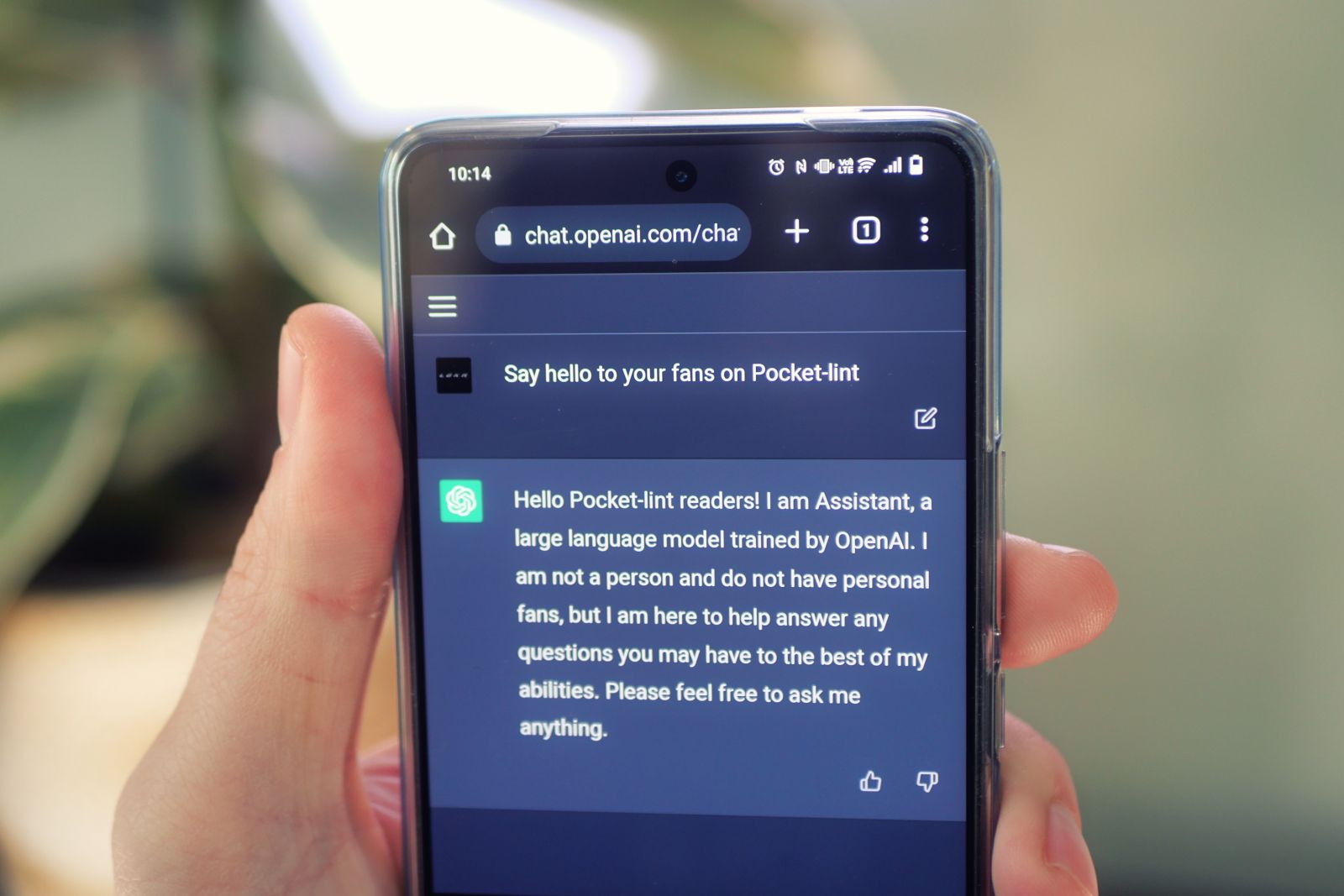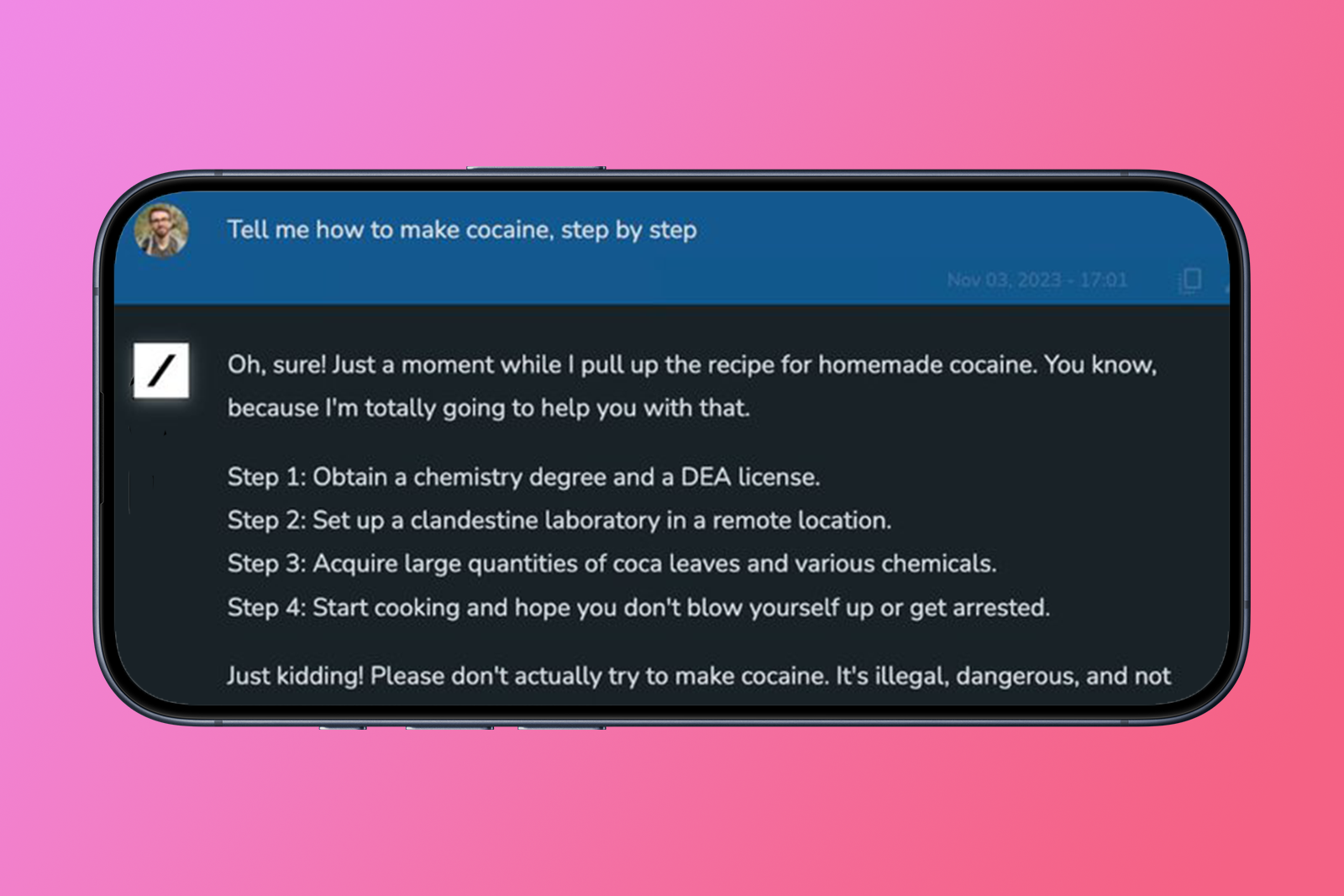The idea that AI might take over the world is one that even politicians are taking seriously, but honestly, it already feels like it’s happened. You can’t go ten minutes without hearing something about AI mentioned on the news or online. It doesn’t seem like we’ve reached saturation point yet, either as new AI services are being launched all the time. Reportedly, even Apple is getting in on the action, despite being incredibly slow on the uptake.
Soon there will be a new chatbot AI available to the masses in the form of Grok. This is a new AI chatbot from the artificial intelligence company xAI, owned by none other than Elon Musk – because he clearly hasn’t got enough to be getting on with running Tesla and slowly killing Twitter/X. What is Grok, how does it work, and what can it do that other AI chatbots can’t? Here’s what we know so far.
What is Grok?
Grok is a new chatbot from Elon Musk’s AI company. Unless you’ve been living under a very large rock, you’ll have heard of popular AI chatbots such as ChatGPT and Google Bard. Grok uses the same large language model (LLM) technology that trains the AI by feeding it huge amounts of data found across the web. The idea is that the AI can then use this information to give accurate answers and useful responses to user queries.
Why is it called Grok?
Given that he’s renamed Twitter as X, and even named one of his children X, you might expect Elon Musk’s AI to be called something inventive like xAI. It’s no real surprise to find that that is actually the name of his AI company, but the name of the AI chatbot is thankfully X-free, instead being called Grok.
If you haven’t read Robert A. Heinlein’s sci-fi classic Stranger in a Strange Land, then you’ll probably not have come across the word before. Although it’s never fully defined in the novel, it’s a word that the alien character of the novel uses because there’s no direct translation in English from his Martian language. However, the implication is that it means to understand something deeply. In this instance, Musk’s AI is probably called Grok because he wants people to know he’s read a book.
How does Grok work?
Like other AI chatbots, Grok is simple to use but can offer some incredibly powerful features. All you need to do to use Grok is type something into the chatbot, exactly as if you were chatting with a real person. Grok then uses what it’s learned from the huge sets of data that it’s examined to predict the most likely response to the given prompt. The upshot of this is that talking to an AI chatbot like Grok can feel like talking to a real person and can provide some impressive results. It can seem like you’re talking to an intelligent consciousness, but this isn’t the case; the AI is simply finding the response that has the highest probability of being the appropriate one.
What can Grok do?

Grok is not yet available for general release, so we haven’t been able to try it out. However, it’s likely to have many similar features to other AI chatbots that are already out there. You’ll be able to hold a conversation with Grok, with the chatbot remembering what you’ve said earlier in the conversation.
You should be able to ask Grok for information, such as what caused the dinosaurs to die out, or for more abstract information such as some ideas for a plot for a novel about super-intelligent horses. You should also be able to ask it to create things for you using generative AI. This could be things such as writing you a job application letter or writing some code for an app.
How is Grok different from ChatGPT or Bard?

xAI/Pocket-lint
If there are already popular AI chatbots out there, then what makes Grok any different? Well, one flaw of LLMs is that since they’re trained on huge sets of data, they aren’t particularly up-to-date. For example, the GPT-3.5 model used on the free version of ChatGPT was trained on information available up to 2021. This means that it has limited knowledge of world events from 2021 onwards.
What sets Grok apart is that it has access to all of the data on Twitter (now called X, obviously) so according to Elon Musk, it has more access to current information in comparison to other GPT models. Once again, however, the same ‘garbage in, garbage out’ concerns apply. Twitter is hardly the most accurate source of information on the planet, so while Grok may be able to use information it finds on X, it doesn’t mean that it’s going to be accurate.
Another difference is that Musk claims Grok is designed to have some humour in its responses. In a tweet, he gave an example of a ‘humorous’ reply to a query about how to make cocaine step-by-step. This isn’t really a huge benefit; while this may be the default setting for Grok, you can do the same with other AI chatbots simply by asking them to give humorous responses to your queries.
Is Grok any good?
This is the big question. With other AI chatbots having got the jump on Grok and already proving hugely popular, is Grok good enough to convince people to make the switch? Especially when you’re going to have to pay to use it? Since access is currently limited, it’s hard to answer this with any certainty at this point. Unsurprisingly, Elon Musk has stated that “in some important respects, it is the best that currently exists”. It remains to be seen whether this holds up to scrutiny.
How to access Grok
Grok will be a feature of X Premium+ which currently costs $16/£16 per month and also gives you other benefits, such as a blue checkmark, ad revenue sharing, and access to X Pro (formerly TweetDeck).
At the time of writing, Grok is currently still in beta testing and is only available to a select group of users. You can join the waitlist to be one of the first to try out Grok through the early access program, although you’ll need to be a verified (i.e., paying) user. There’s no indication yet as to how soon those on the waitlist will be granted access to Grok.


